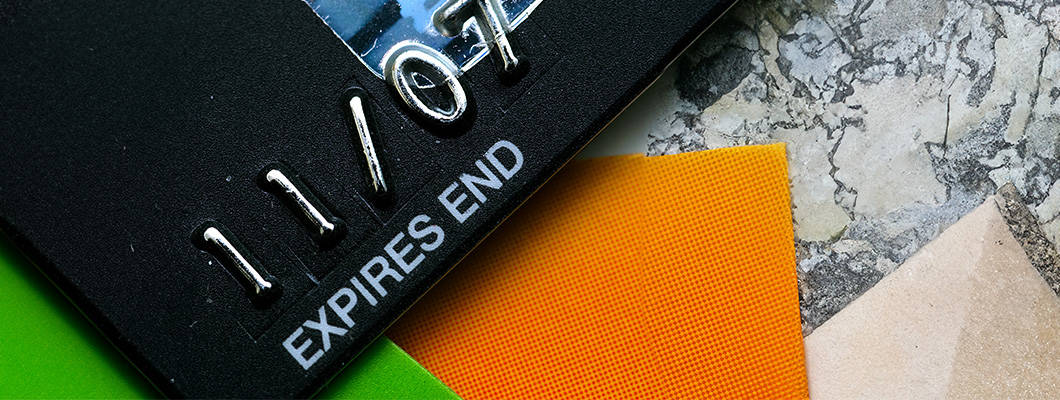
A Deep Dive into the Credit Card Expiry Date
Posted on Thursday, February 29th, 2024 | By IndusInd Bank
If you use a credit card, the chances are you often look at the CVV, your name, or the bank name printed on the card. Amidst various details, one tiny but mighty detail is the credit card expiration date. Whether you swipe your card while on a shopping spree, or even do a routine check of your wallet, that little combination of month and year is a constant companion on your credit card.
Credit card expiry date might look like another set of numbers but holds significant importance. What more should you know about this credit card validity period? Let’s find out.
Credit Card Expiry Date Defined in Detail
The credit card expiration date is a crucial element that defines the functionality of your credit card. Essentially, the expiry date represents the month and year until your credit card is valid. When you check your credit card in detail, you’ll notice this information prominently displayed, usually in the format MM/YY.
The significance of the credit card validity period goes beyond a mere timestamp. Here are the multifaceted purposes this essential detail serves:
1. Prevention of fraud
The card expiry date acts as a preventive measure against unauthorised use and mandates periodic card renewals. This way, it ensures that the cardholder regularly engages with their account, reducing the risk of fraud.
2. Cardholder verification
When making online purchases, the credit card expiry date, together with other authentication factors, adds an extra layer of security. It confirms that the person conducting the transaction is the legitimate cardholder.
3. Card maintenance reminder
The expiry date also serves as a visual cue for cardholders to get their card renewed before the expiry date to continue using the card. A worn-out, expired credit card may not function properly, prompting the need for a replacement.
4. Adaptation to technology and security updates
As technology evolves, so do security standards. The expiry date ensures that credit cards are periodically updated to incorporate the latest security features, keeping pace with advancements in the financial industry.
Where Can You Find the Credit Card Expiration Date?
Here’s a quick guide on how to locate the card expiry date:
1. On the front of the card
On most credit cards, you’ll find the expiration date displayed on the front. Look for a set of numbers typically in the format MM/YY.
2. Near the card number
The expiry date can also be positioned near the card number, usually to the right or left. Its proximity to the card number streamlines the verification process during transactions.
3. Distinct font or colour
The expiry date may be in a distinct font or colour to make it easily identifiable. This visual distinction ensures that cardholders can quickly locate and use this information while making a transaction online.
What Should You Do Once Your Credit Card Has Expired?
1. Check for a newly issued card
The credit card issuer typically mails a replacement card 30-60 days before your existing card expires. Verify if you’ve received a new card, as it will carry the same credit card number but with a new expiration date and CVV. If not, it might be a good time to explore your options and apply for an instant credit card online for a seamless transition.
2. Activate the new card
Your new credit card won’t be operational immediately upon arrival. Activate it by following the instructions provided by the card issuer. Usually, this involves a quick call to the customer service number on the card or a series of steps to set up the card pin.
3. Update automatic subscriptions
An expired credit card may result in interruptions to services tied to recurring payments. You can ensure the continuation of recurring payments for subscriptions by updating your billing information.
While the credit card expiry date may seem like a small detail, understanding its importance and addressing card expirations promptly can contribute to a secure credit experience.
Apply for an instant credit card online with us here!
Disclaimer: The information provided in this article is generic in nature and for informational purposes only. It is not a substitute for specific advice in your own circumstances. Hence, you are advised to consult your financial advisor before making any financial decision. IndusInd Bank Limited (IBL) does not influence the views of the author in any way. IBL and the author shall not be responsible for any direct/indirect loss or liability incurred by the reader for taking any financial decisions based on the contents and information.



 Offers
Offers Rates
Rates Debit Card Related
Debit Card Related Credit Card Related
Credit Card Related Manage Mandate(s)
Manage Mandate(s) Get Mini Statement
Get Mini Statement
 categories
categories Bloggers
Bloggers Blog collection
Blog collection Press Release
Press Release


